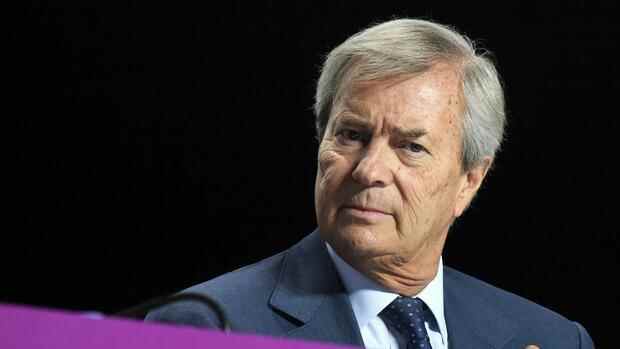In most cases, however, Bolloré made sure to stay below the threshold of 30 percent of the shares, above which, under French law, a takeover offer must be made to all shareholders. It was enough for him, as the main shareholder, to actually determine the management and its course.
At Lagardère, however, he goes all out: Last week Vivendi announced that it would take over almost 18 percent of the fund company Amber Capital for 610 million euros and thus increase the share to a good 45 percent. According to the plan, the complete takeover of the competitor should be completed by December 2022.
The deal would create one of the largest media groups in Europe. Vivendi also owns the pay TV channel Canal + and the second largest French publishing company Editis.
Top jobs of the day
Find the best jobs now and
be notified by email.
The group is separating from its music division Universal, the IPO of the profitable label is due on Tuesday. The sale gives Vivendi financial firepower for further acquisitions. The 69-year-old Bolloré, speculates the business newspaper “Les Échos”, wants to leave a media group with two main focuses: the TV market and the publishing industry, before his retirement, which has been announced for the beginning of next year.
Vivendi hopes for synergy effects
In the Lagardère Group, which had sales of around 4.4 billion euros in 2020, Bolloré is likely to be primarily interested in the leading French publishing house Hachette, which is also well positioned internationally. The portfolio also includes the French radio station Europe 1, magazines such as “Paris Match” and “Elle” as well as the newspaper “Le Journal du Dimanche”.
Vivendi is obviously hoping for synergy effects. In any case, there is already a substantive cooperation between Europe 1 and the TV news channel CNews, which is controlled by Bolloré.
The cooperation with the editors of Europe 1 was not at all well received; CNews is regarded as a right-wing information channel. Some even speak of the “French Fox News”. One of the station’s top ratings is journalist Eric Zemmour, who is toying with a candidacy in the presidential election next year and could compete with Marine Le Pen in the far-right camp.
Does Bolloré also have a political agenda with his media empire? The billionaire is difficult to see through. There is no known sympathy for the right-wing populist camp, but Bolloré is considered to be conservative. The tradition-conscious Catholic is said to include ex-President Nicolas Sarkozy among his friends, whom he once invited to vacation on his yacht.
Bolloré began his career at the Edmond de Rothschild investment company. There he learned how to maximize one’s power with as little effort as possible.
Over the years, Bolloré has transformed his father’s paper and transport company into a conglomerate. He operates ports and other infrastructure projects in Africa, owns palm oil plantations, is heavily involved in the transport business and holds various financial investments. Since 2014 he has built up the large stake in Vivendi.
Rivalry in the top French entrepreneurial families
The envisaged takeover of the Lagardère Group by Vivendi is also a painting of the rivalry among the top French entrepreneurial families. Bolloré ensured that Arnaud Lagardère lost unrestricted power over the family company when the shareholders decided at the general meeting at the end of June to convert the partnership limited by shares into a traditional joint stock company.
Interest in the Lagardère group was also said to be the head of the luxury group LVMH, Bernard Arnault, who heads the list of the richest French. Arnault was temporarily seen as a bulwark against the control ambitions of Bolloré near Lagardère, but in the end stuck behind the financially less powerful Vivendi major shareholder.
The mega-deal in the French media industry is not yet dry. In both Brussels and Paris, the approval of the supervisory authorities, who have to deal with the foreseeable concentration in the publishing industry, is pending. Above all, the activities of Hachette and Editis under one roof would mean a quasi-monopoly.
Almost 20 years ago, an attempt to merge the two actors failed because of antitrust concerns. In order to get approval, Bolloré could ditch some publishing activities, according to French media.
More: Vivendi shareholders support possible IPO of Universal Music
